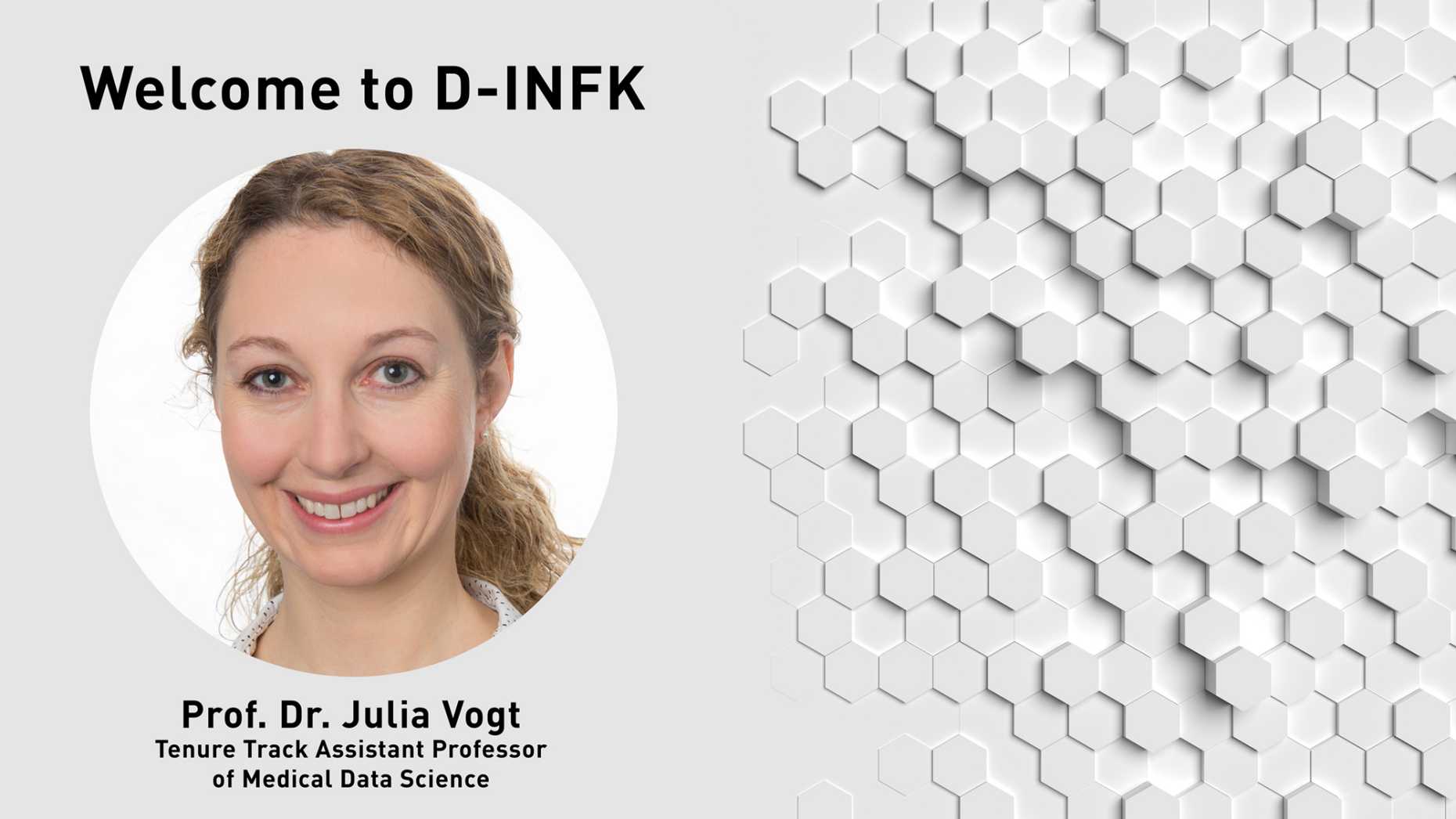Welcome, Professor Julia Vogt!
18.06.2019 | Anna Ettlin
Professor Julia Vogt officially joined the Department of Computer Science of ETH Zurich at the beginning of May 2019 as Tenure Track Assistant Professor of Medical Data Science. Get to know her in this short interview.

Professor Vogt, welcome to ETH! What are your current research interests?
My research interests lie in the development of new machine learning techniques for clinical data analysis and precision medicine. My main focus is on linking computer science with medicine, with the ultimate aim of personalised treatment. Especially important to me is the development of new modeling frameworks for the analysis of big, diverse and longitudinal data sets as a vast amount of heterogeneous and distributed data measured over time is available in many biomedical and clinical applications. The research areas range from data-type specific preprocessing and feature extraction to methods focusing on the integration of multiple, possibly very different, data types, to advanced machine learning methods that allow analyses of complex biomedical multi-modal time series data. Further goals of my group’s research are the creation of modern therapeutic decision support systems and ensuring accessibility both for researchers and physicians.
What is the impact of your research on society?
Precision medicine is a topic of wide interest and one of the most important trends in modern medicine. The aim of my research is to shift the emphasis in medicine from reaction to prevention, to improve disease detection and to understand and predict disease progression. My group’s research will impact patients at hospitals as we are working on reducing the trial-and-error prescribing of drugs and avoiding adverse drug reactions. Our research will thus improve the quality of life of many individuals and, last but not least, may help to control the overall cost of health care.
Where were you working before you came to ETH?
I was an Assistant Professor at the Department of Mathematics and Computer Science at the University of Basel before joining ETH as an Assistant Professor. Earlier, I was a postdoctoral researcher at the Sloan Kettering Cancer Center in New York City in the USA and at the University of Konstanz in Germany.
Which courses will you be teaching at ETH?
This has not been finally decided yet, but I plan to teach courses related to machine learning in healthcare and medical informatics.
Name an interesting fact about your research.
My research focuses on bridging medicine with computer science. The multitude of problems arising in the field of medical informatics can only be solved by a collaboration of scientists from different fields. We collaborate and work very closely with physicians and biologists. With every project, we broaden our horizon by learning something new and exciting about a specific applied domain, for example in the area of cancer, childhood diseases or cardiovascular diseases.
What are your first impressions of Switzerland and ETH?
ETH is an amazing place to be, both for students as well as for faculty staff. The Department of Computer Science offers an extremely strong research program, the students are excellent and the research environment is unique at ETH. Particularly in my research area of medical informatics, the proximity to a leading university hospital and the Faculty of Medicine of the University of Zurich even enables geographically close collaborations. My impressions of Switzerland in general is that the country is extremely beautiful. I have been living in Switzerland for some time and I have already visited many places. I especially love the natural beauty of the Alps, both in winter for skiing and in summer for hiking.